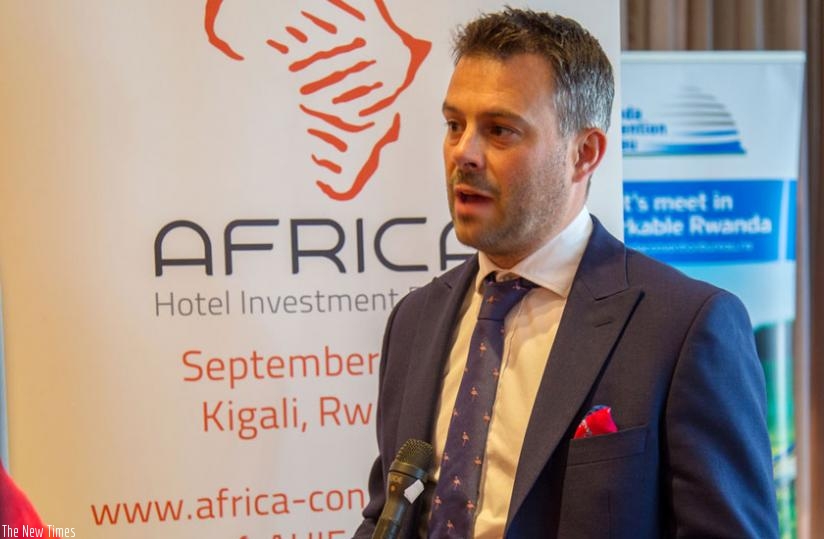How Covid-19 Impacts Africa’s Tourism Industry
By Kelechi Deca
Prior to the outbreak of the Covid-19 pandemic, many African countries looked towards using the tourism sector to launch their economic diversification programmes because there is no African country that does not boast of either beautiful virgin scenery or wildlife. Most especially the seasonal those that have remained stuck in the mono-economy quagmire of over-reliance on commodities. Enduring the debilitating effects of seasonal price fluctuations occasioned by external market factors. To these countries, tourism offers the lowest cost-effective hanging fruits with its ancillary labour intensive capabilities which raises hopes of lifting the unemployment market. These dreams however, were cut short, no thanks to the nouvel coronavirus pandemic.

One sector that took the biggest blow from the Covid-19 pandemic is the tourism sector. And within that sector, the hospitality subsector was hardest hit. Tourism is such an important industry in Africa, because of the direct and indirect jobs that it creates and sustains, as well as its strong foreign currency earnings. Before the pandemic, African hotel development returned to growth at the start of 2020, with more than 78,000 rooms in 408 hotels in the pipeline, according to the 12th annual survey by W Hospitality Group, acknowledged as the industry’s most authoritative source. However, the COVID-19 outbreak is now shattering the dreams of Africa’s hotel industry.
W Hospitality Group’s Managing Director, Trevor Ward, said: “The growth of the chains’ presence in Africa has been a very positive story since we started this analysis in 2009. It is quite clear from the numbers that the chains, the developers, the investors – and all of us at W Hospitality Group! – continue to believe in the opportunities that Africa presents in the hotel and tourism industry. However, our industry has been devastated by the impact of COVID-19, possibly more so than most other economic sectors, mainly because of the almost total shutdown of borders and of the aviation sector – no flights means no guests.”
Read also : https://afrikanheroes.com/2020/06/15/coronavirus-african-debt-freeze-may-hurt-future-access-to-markets/
“With that background, we see a slowdown in pipeline growth in 2020, as we all get to grips with the new reality. With so many of the players locked down, fewer deals will be signed, and it is inevitable that some of the planned openings in 2020 will be delayed, due to closed or slower-paced construction sites, restrictions on funding and a lack of market demand. According to our latest data, there are 90 hotels with 17,000 rooms scheduled to open in 2020, but we estimate that at least half of these will be delayed, bringing the actualisation rate down to no more than 40%.”
This year’s African Hotel Chain Development Pipeline survey covers 35 international and regional hotel contributors across the 54 countries in north and sub-Saharan Africa, and in the Indian Ocean islands. It reveals a 3.6% increase on the 2019 pipeline. Most encouraging was a record 68 chain hotels opening last year, fully 75% of those which were scheduled to open, with 11,000 rooms. That performance was substantially up from the 39% of those scheduled to open in 2018 actually doing so. Accor performed particularly well; it opened 18 hotels last year with almost 3,500 rooms in its various brands, ranging from Ibis to Fairmont.
The findings of the 2020 Pipeline report, together with a mid-year update, will be discussed in depth at Bench Events’ new virtual conference, Africa Tomorrow (www.Africa-Tomorrow.com), to be held on 21st July. This event is complementary to the Africa Hotel Investment Forum (AHIF), the leading hospitality investment conference in Africa, which has in previous years connected business leaders to serious investors, driving funds into tourism projects, infrastructure and hotel development across the continent.
Marriott, the world’s largest hotel chain, has the largest pipeline in Africa, 22 per cent more hotels and 6 per cent more rooms than second-placed Accor, but Accor has been catching up fast, signing 25 new deals last year, compared to Marriott’s 17 new projects. If Accor can open its hotels in 2020 at the same rate that it did in 2019, it is likely the company will overtake Marriott and position itself as the largest operator in Africa.
Trevor Ward said: “We have to wait and see what will happen in the second half of 2020, and in 2021, as we emerge from lockdown and other restrictions. Tourism is such an important industry in Africa, because of the direct and indirect jobs that it creates and sustains, as well as its strong foreign currency earnings. We are anxious to see hotels reopen and get back to contributing to the African growth story.”
Read also : https://afrikanheroes.com/2019/09/25/pushing-the-boundaries-of-african-hospitality/
Matthew Weihs, Managing Director of Bench Events, which is staging Africa Tomorrow, said: “Right now, we are facing the biggest recession in history. For those seeking to operate hotels, it is a dreadful time. However, for the savvy investors, this is actually a moment of opportunity because hotels are a long-term investment and one of the secrets of success is to spend money during the bottom of the economic cycle in order to capitalise on the upturn as soon as it comes. That’s one reason why I expect the networking sessions in Africa Tomorrow will be very busy and fruitful.”
Read also : https://afrikanheroes.com/2020/06/16/nra-celebrates-enhanced-tax-system-in-sierra-leone/
There is renewed optimism that if the world is able to get a handle on the pandemic before the end of the 3rd quarter of 2020, there is a slim chance of recovering from the negative impacts on the tourism industry especially in Africa as many foreign tourists would like to escape their countries in Europe and North America for a breath of fresh air, preferably Africa. But this too depends on Africa’s ability to stem its rising Covid-19 cases and bring it to a halt within the same period.
Kelechi Deca

Kelechi Deca has over two decades of media experience, he has traveled to over 77 countries reporting on multilateral development institutions, international business, trade, travels, culture, and diplomacy. He is also a petrol head with in-depth knowledge of automobiles and the auto industry


